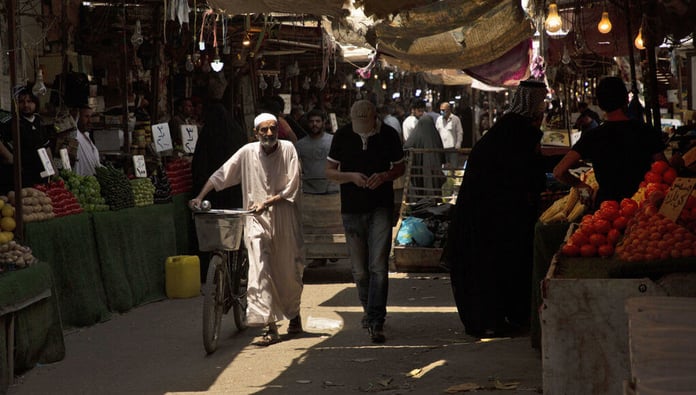
Rajeeb Sheikh did not receive his salary three months ago, and the Iraqi business owner stopped for some time to provide meals for him, so this Bengali was forced for the first time to ask for money from his family, who immigrated to support them.
This 26-year-old cook, who arrived seven years ago in the southern city of Basra, was like the thousands of workers from Asia and were stuck in a country where he had no work and no way to leave because of lack of money.
“Usually, we are the ones who send the money back to our country,” says the young man who calls himself Mohamed for easy keeping from his employers.
Nafis Abbas also left his family in Pakistan. This 32-year-old tailor reopened his employer’s shop only a few days ago, after spending nearly four months without work due to the blanket ban that the Iraqi authorities imposed to contain the Covid-19 epidemic.
While Iraq is witnessing the worst economic crisis in its modern history, between the Covid 19 pandemic and the drop in oil prices, Abbas believes that he has no future in this country, which is now speaking his language fluently.
“I don’t have one dinar.”
“I would like to return to my country, but I do not have a penny. The cost of the trip to Pakistan is 700 dollars, and I don’t have one dinar,” he told France Press in front of the sewing machine installed in front of a mirror.
Menzarul Islam lost everything, too. And when he reached the age of thirty he spent nine of them in Iraq, he recently sought refuge in his country’s consulate.
“The embassy contacted us and offered us a place to sleep and eat,” he told The Eastern Herald.
The Bangladeshi diplomat, Mohammad Reza Kabeer, has witnessed a deterioration in the conditions of his citizens in Iraq over the past weeks.
Of the 250,000 Bangladeshi workers registered in Iraq, he says, “more than 20,000 have lost their jobs.”
These figures are estimated and are based on registered workers and employees in a legal way, and possibly much higher.
In a sign of the worsening situation, the oil and contracting companies, which are the most prominent sector of Asian workers in Iraq, began to reduce their workforce significantly.
And Reda Al-Kabeer notes that “some were fired without receiving their salaries,” noting that he received in Baghdad “more than nine thousand Bengalis who lost their jobs in an oil company.”
“They all want us to help them return to the country, and we are doing our best, but it is expensive and a lot of planes must be leased,” he says.
According to the International Labor Organization, which recently conducted a survey of dozens of employers, four out of ten of them acknowledged that they had laid off employees, and most of them said that they do not hope to return work to its level before the epidemic, even if the current wave of the outbreak of the virus ends.
Forty percent of them think that they will have to keep the doors of their companies closed for a period of time or simply, declare bankruptcy.
The worst is coming?
Salem Ahmed, who runs several restaurants, estimates his losses at “about twenty thousand dollars a month.” This puts his 80 employees at risk, including 12 foreigners from Bangladesh or Egypt who are still able to pay their salaries, even though his work with delivery requests has declined only due to Covid-19.
As oil revenues drop, Ahmed says, “The state will ask us for taxes in July, and the government has not planned to provide any assistance to companies.”
“The authorities must release emergency aid to workers, especially those who find informal work,” explained the head of the Iraqi section of the International Labor Organization, Maha Strip, to AFP.
Thanks to this informal work, Muhammad Fazil Al-Haq (49 years old) has been able to support his family in Bangladesh for years. Almost every month he would find a new grocery store looking for a worker.
There was no fear of tomorrow at that time. Asian workers arriving daily on full planes at Iraqi airports were wanted.
The employers are unanimous that they are “low-cost, and work more than the people of the country.”
But today, the situation has changed. “Today everything is closed,” Fadel Al-Haq says. “”With the Coronavirus, there are no longer customers.” Hence it has no work for him and other Asian workers.
While expectations indicate a contraction of nearly ten percent in the Iraqi economy, the past few months possibly just a sample of the upcoming bad conditions.













